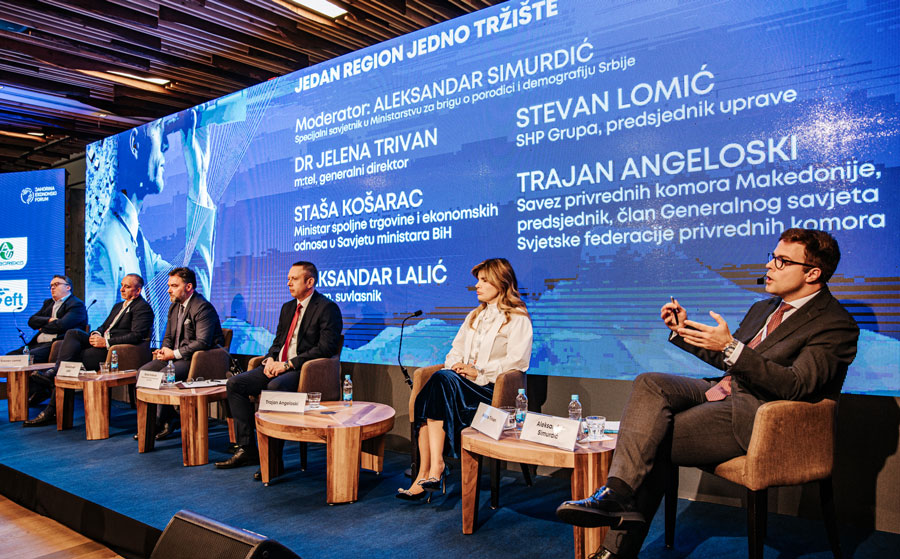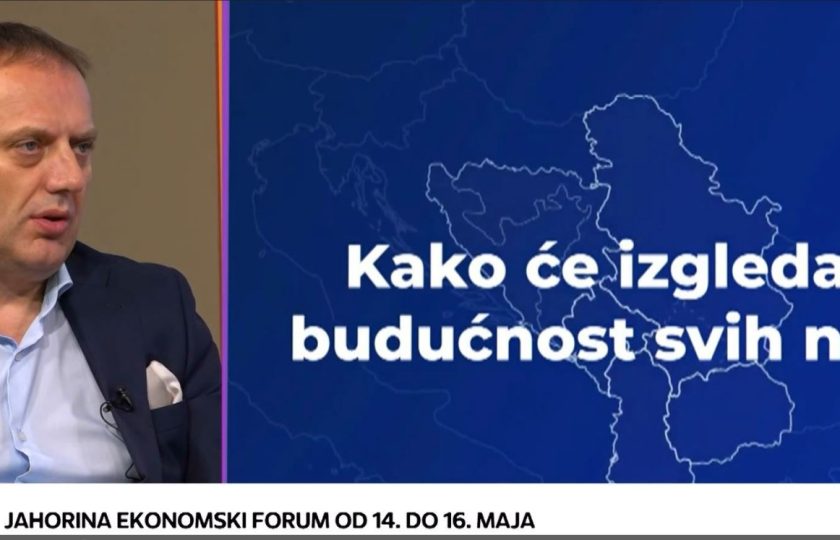
The dominant theme of the second day of the Jahorina Economic Forum was regional cooperation
Regional collaboration and linking companies from different sectors, facilitation for producers, and assistance from state authorities throughout the process were the key topics that dominated the discussions on the second day of the seventh ‘Jahorina Economic Forum.’
During the panel discussion ‘One Region, One Market,’ it was emphasized that everyone in the Western Balkans should develop their own economies but must not neglect the development of the regional market.
It was highlighted that political prejudices often hinder development, but regional initiatives can significantly help the economy. However, despite the existence of several regional initiatives such as the Open Balkans or the Berlin Process, entrepreneurs pointed out that many good ideas remained only on paper and did not materialize in practice. Particularly, attention was drawn to the problem of excessive retention of goods at borders, causing the economy to lose around 300 million euros annually, according to some estimates.
“Until we realize that our economic imperative is to cooperate despite past traumas and disputes, we will not work for the benefit of our citizens,” emphasized Jelena Trivan, the CEO of m:tel, as reported by Glas Srpske.
She added that the company she leads is an excellent example of success in the common market of the Western Balkans.
Minister of Foreign Trade and Economic Relations of BiH, Staša Košarac, emphasized that everyone in the region should invest more energy in the story of gathering and a common market.
“Without a unified market, we will have a series of problems if we fail to eliminate barriers that slow down entrepreneurs,” Košarac stated.
During the panel ‘Regional Energy Market,’ Minister of Energy and Mining of Republika Srpska, Petar Đokić, stated that Republika Srpska can obtain 60% of its energy from green sources within five years, which is a realistic plan and a sign of the country’s high level of responsibility towards the overall energy transition taking place in Europe and the world today.
He explained that energy transition means phasing out coal as an energy source for electricity production, which requires sincere and persistent European engagement, which is not currently the case.
Đokić mentioned that coal is a base energy source in the Balkan countries, and it is impossible to abandon it as the EU has envisaged, citing the case of Germany, which is restarting preserved coal-fired power plants.
“Republika Srpska and BiH, as small countries, need to take care of their interests and ensure a secure supply to meet domestic needs,” Đokić said.



